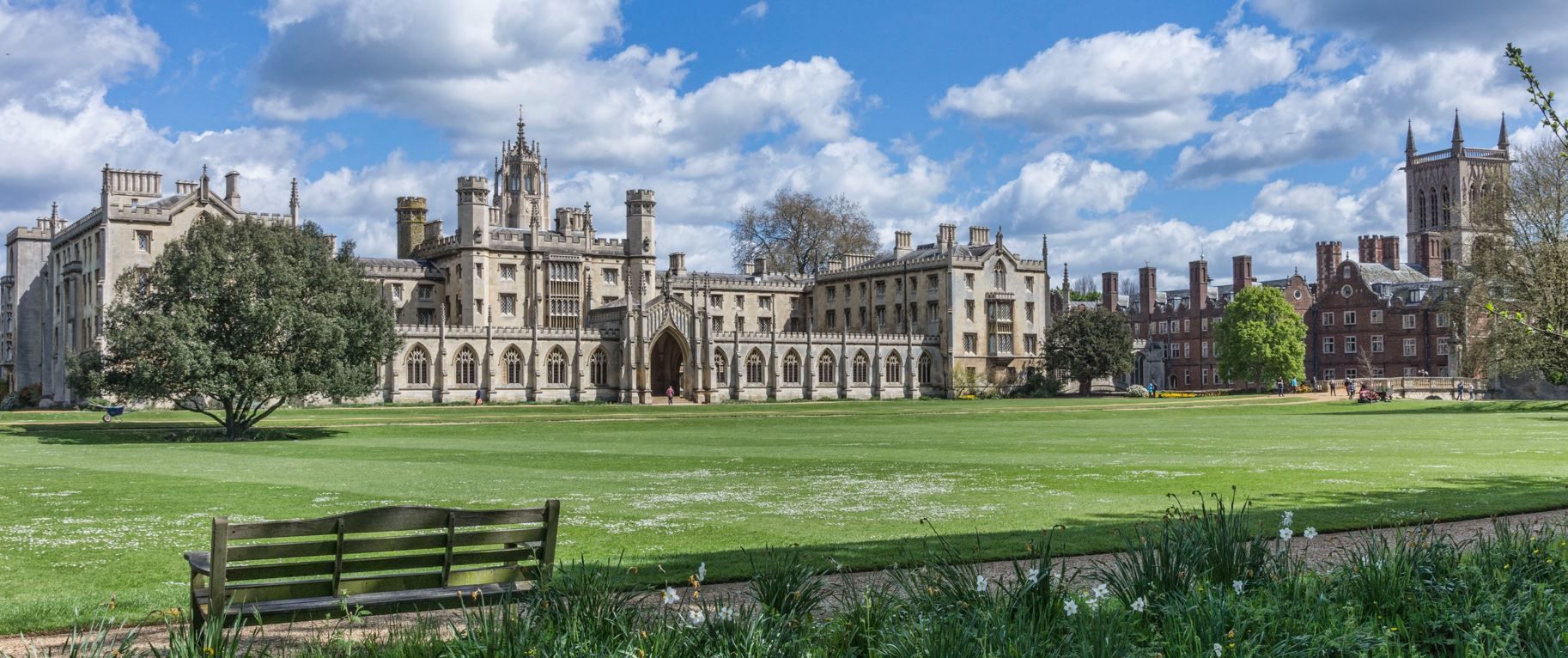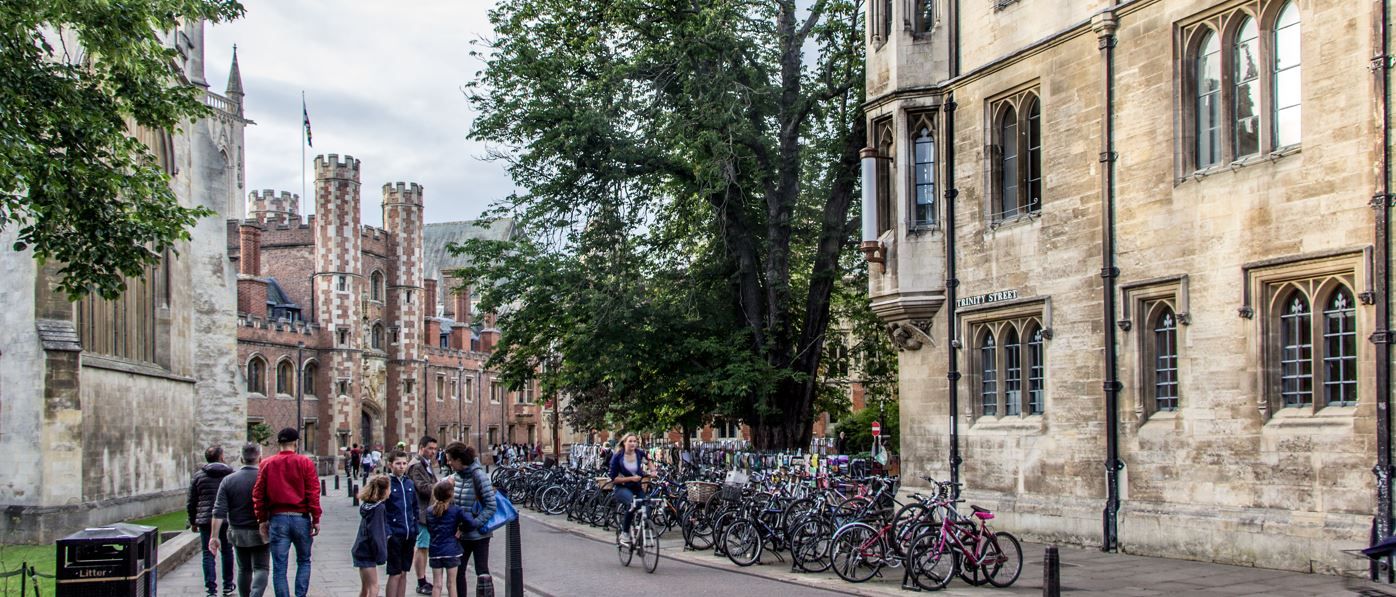UK University Admissions Tests Demystified: A Comprehensive Guide for Aspiring Students
Read now/f/64062/1920x800/758e06bd84/oxford-university.png)
Chat with us
/f/64062/1600x550/b6c83c381f/oxford.jpg)
More than 800 years ago, Oxford and Cambridge were the only two universities in England. While the rivalry between the two still exists today, it's more of a healthy rivalry that has brought the two schools closer. Students around the world dream of studying at one of these prestigious universities.
This year, we’re delighted to share that our Crimson Singapore students have secured 10 offers to Oxbridge!
Check out our university profiles to learn more about Oxford and Cambridge.
Unfortunately, no. You cannot apply to Cambridge and Oxford in the same admission year. The sheer volume of applicants who want to attend one of these universities would make it logistically impossible to evaluate all the applications. Limiting candidates to choose between the two reduces the number of applications they must assess for their limited intake each year.
Further, given that Oxford and Cambridge are fully aware that they have world reputations for being two of the best universities in the UK and the world, they know that when an applicant applies to their university, that student has made a conscious decision of preference. In doing so, you as the applicant signal to that university that you believe they can provide you with the best launching pad to future success and a lifetime in that collegiate community.
Therefore, if you have set your targets on attending Oxbridge, it is essential you know which of these two universities is most suitable for your future aspirations. Then you can decide which university is best for you! Let's compare Oxford and Cambridge over six categories.
Here are the categories we’ll be comparing:
| Oxford | Cambridge | |
|---|---|---|
| Year Founded | 1096 (unofficially) | 1209 |
| QS World University Ranking 2021 | 5 | 7 |
| International Students | 8,442 | 7,925 |
| Total Students | 22,155 | 19,660 |
| Student Teacher Ratio | 3:1 | 4:1 |
| Number of Colleges | 39 | 31 |
| Tuition | £9,250 per year for UK & Ireland £26,770 - £37,510 per year for International | £9,250 per year for UK & Ireland £22,227 - £33,825 per year for International |
Ready to get started on your path to a leading UK university? From Oxford to Cambridge, UCL to LSE, Crimson students have the highest global admissions success rate to the UK Top 10 and more. Learn more about how we can help you with your university applications!
| Oxford | Cambridge | |
|---|---|---|
| City | Oxford feels like a big city with the university sprinkled throughout (think NYU). It is a lot more urban, but London's mighty Thames runs through the city. | Cambridge is relatively small and mostly dominated by students (similar to US campus Stanford). The city has its own river named Cam. |
| Time to London | London is only an hour away from Oxford by train. #citytrips | Cambridge is less than an hour to London by train so going into the city for the day is doable. |
| Weather | The weather at Oxford is not as windy or foggy, but it is still in the UK. Bring an umbrella. Or three. | Cambridge is foggier and windier than Oxford. Bring a windbreaker. |
Cambridge is a university with a city around it, and Oxford is a city with a university in it.
Both Oxford and Cambridge are great college towns, but for different reasons. If you want to live in a quaint, student-run city, you'll like Cambridge. You'll like Oxford if you are more interested in living in a busy, big city where your university is only part of the entire city.

| Oxford | Cambridge | |
|---|---|---|
| Tuition | £9,250 per year for UK & Ireland £26,770 - £37,510 per year for International (except medicine) | £9,250 per year for UK & Ireland £22,227 - £33,825 per year for International (except medicine) |
| Scholarships | If you are a UK/EU student from a low-income household, Oxford support offers annual bursaries to help you pay for the cost of living. Aside from that, Oxford also offers nine different scholarships determined mainly by your hometown. | Cambridge offers around four different international undergraduate scholarships a year based on various factors, including your hometown, whether or not you have a disability and which college accepts you. There is also financial support with four scholarship opportunities if you are from the UK/EU. |
Both Oxford and Cambridge cost around the same amount, although Oxford is more expensive if you are an international student. Either way, both universities' study costs are cheaper than US colleges. Depending on where you are from, there are more scholarship opportunities at Oxford; however, if you have a disability, Cambridge has more financial support for you.

| Oxford | Cambridge | |
|---|---|---|
| Tutorials/Supervisions | If you dream of being in a class with only one other student and the professor once a week, you’re in luck! Tutorials allow you to discuss your work in a small setting in order to get personalised critiques and advice. | Just like Oxford’s “tutorials” |
| Courses | Oxford is slightly stronger at the humanities and social sciences. However, if you choose to study science, you have to pick one subject. There are no flexible science degrees available. However, you can get a joint degree. The university is currently ranked first in the world for: English Language, Literature, Geography, History, and Modern Languages | Cambridge is well known for its natural sciences courses. Cambridge also offers a flexible natural science degree so you can combine any biological and physical science to create your degree. Unlike Oxford, you can study education as an undergraduate at Cambridge. The university is currently ranked first in the world for: History, Mathematics, and Archaeology. |
| Assessments | While you're at Oxford, you will be assessed informally through the work you produce for your tutors. In your final year, you will take about 30 hours of exams to determine your degree classification. | Like at Oxford, you will be informally assessed weekly during your supervisions. However, you will have exams throughout your time at Cambridge, not only in your final year. |
Academics are the best differentiator between Oxford and Cambridge. Think about what you want to study before deciding where to apply. Luckily, both universities offer “Open Days” where you can visit the departments you are interested in and figure out which ones you like best. Check out the full course listing for Oxford and courses for Cambridge if you cannot attend an “Open Day.” The subject you choose to study will help you determine which university to attend.
Additionally, you can download our free eBook on the Top 5 US/UK Universities for Med, Law & More and see where Oxford and Cambridge rank!

| Oxford | Cambridge | |
|---|---|---|
| Overall Acceptance Rate | 16.7% | 19.6% |
| International Acceptance Rate | 9.3% | 12.1% |
| Application | Like most universities, Oxford’s application is online. You will not need to fill out any extra forms, but you may need to take multiple tests or submit written work. Your teachers are also given the opportunity to talk about any extenuating circumstances you may have. Tutors use your application, references and test scores to determine your place. If you are shortlisted, you will be invited to interview a few different times. | Cambridge’s application is also online. You are required to complete an additional form after you submit your main application. Supervisors are given with your school performance data to help them understand your educational achievement. Your teachers are also given the opportunity to talk about any extenuating circumstances. Supervisors consider your AS level grades, UMS scores, additional forms, and teacher letters when deciding whether or not you will be offered to interview and ultimately be accepted. |
| ACT Score | 32+ | 32+ |
| SAT Score | 1,470+ | 1,460+ |
| AP Courses | 5 on at least three different exams | 5 on at least five different exams |
| AS/A Levels | A*A*A - AAA | A*A*A - AAA |
| IB | 38 - 40 | 40-42 |
| ATAR | 98.5 - 99.5 | 98.5 overall |
| HKDSE | 5s in three elective subjects. (If you are applying to study Mathematics, you would need 5* in the compulsory Mathematics course, 5 in the Mathematics extended paper, and another 5 in another subject.) | 5*, 5* and 5 in three specified elective subjects related to your chosen course |
| SIPCAL | Three A grades at H2 | AAAA at H2 Level or equivalent |
Oxford and Cambridge are highly competitive, and unfortunately, you can only apply to one per year. According to these acceptance numbers, Cambridge appears to be the easier to get accepted. However, you still need to be at the top of your class and prove that you have mastered the subject in which you wish to get a degree. If you come from the US, your test scores need to be incredible.
You can use our UK University Admissions calculator to determine your chances of attending Oxbridge based on your current grades!
| Oxford | Cambridge | |
|---|---|---|
| Sub Fusc | Both universities have their own version of this attire and it is required at a handful of events throughout the year. Your sub fusc lets people know what degree you are studying and whether or not you have a scholarship. At Oxford, you are also required to wear these gowns during your exams. | Like Oxford, Cambridge also has a variety of events throughout the year that require this formal attire. Thankfully, you no longer need to wear your gown during exams. However, you probably can't wear sweatpants. |
| Formal Hall | If you love three-course meals in a fancy dining hall, Formal Hall is for you. Depending on your college, you may have these dinners almost every night or only a few times per term. | Think gongs, candles and Latin grace. Oh, and food. Lots and lots of food. |
| Pennying | Forget about beer pong, pennying might be your new favorite drinking game. Basic rules are as follows: Slip a penny into your friend’s drink. If they don’t notice, your friend has to chug their drink. This game has a lot more rules, but they're confusing. Live and learn. | At the end of every exam period, you can make a cardboard boat and race down the river Cam. Expect to get wet. |
| May Morning | Every year on April 30th, all of the pubs, bars, clubs, and cafes are open all night long. The next morning (May 1) at 6 AM everyone gathers by the Magdalen Bridge to hear choristers sing. Afterwards, everyone goes back to the bars and cages to drink more. If you really want to have fun, feel free to jump off the bridge! | In June, after your exams, there are a ton of garden parties, all-night balls, and more to help you get out of your post-exam funk. |
| Oxford Time | A long time ago, Oxford ran on its own time - 5 minutes later than Greenwich time. Thankfully, all lectures at Oxford still start 5 minutes past the hour. #5moreminutesofsleep. |
Oxford and Cambridge have a long history and, therefore, many traditions. One of their most famous, shared traditions is the annual rowing race on the River Thames. The two universities compete against each other, and it always gets heated. In terms of traditions, you really can’t go wrong with either university, unless you refuse to wear formal clothing to your exams, in which case Cambridge is for you.
| Oxford | Cambridge | |
|---|---|---|
| Night Life | If you are looking for a lively nightlife scene with more bars and clubs, Oxford is for you. | If you’re into a refreshing pint at a pub, then Cambridge is your answer. |
| Societies | Oxford has more than 150 clubs and societies. The Tea Appreciation Society, The Doctor Who Society, and The Harry Potter Society are just a few examples. | Cambridge has more than 700 student societies including: The Breakfast Club, Hackers at Cambridge, and the Science Fiction Society. |
| Sports | Oxford has 85 sports clubs to fit all of your athletic desires. Some standouts include: Floorball, Gliding, and Motor Drivers. | Cambridge also 55 sports clubs including Powerlifting, Cruising, and Trampoline. |
Both universities use the ‘College system,’ an elective living situation that allows students to live, eat and socialise together in a place with its own culture and traditions. Oxford has 39 colleges, and Cambridge has 31. Most people live in their college for at least their freshman year.
Aside from your residence, your college has a dining hall, social facilities and sets up your tutorials for you. Each college has both graduate and undergraduate students studying various courses. The best way to figure out which college you like is to look at how many people are in each college, how many people are studying the same subject as you, and how you feel about the college overall.
While neither school invests in sports like schools in the US, both Oxford and Cambridge offer various opportunities to play on a team. Aside from sports, both universities allow you to create your own clubs. The real decision comes down to whether you’re more into clubs or pubs.
You will receive an excellent education regardless of which university you attend. Keep in mind that academics should be the most significant factor to consider when making your decision. Consider visiting both universities on open days to get a feel for each one or thoroughly examine the course descriptions.
If you’re still unsure about which universities you should apply to, please reach out to us! We can put you in touch with one of our expert academic advisors who can guide you through the entire admissions process!